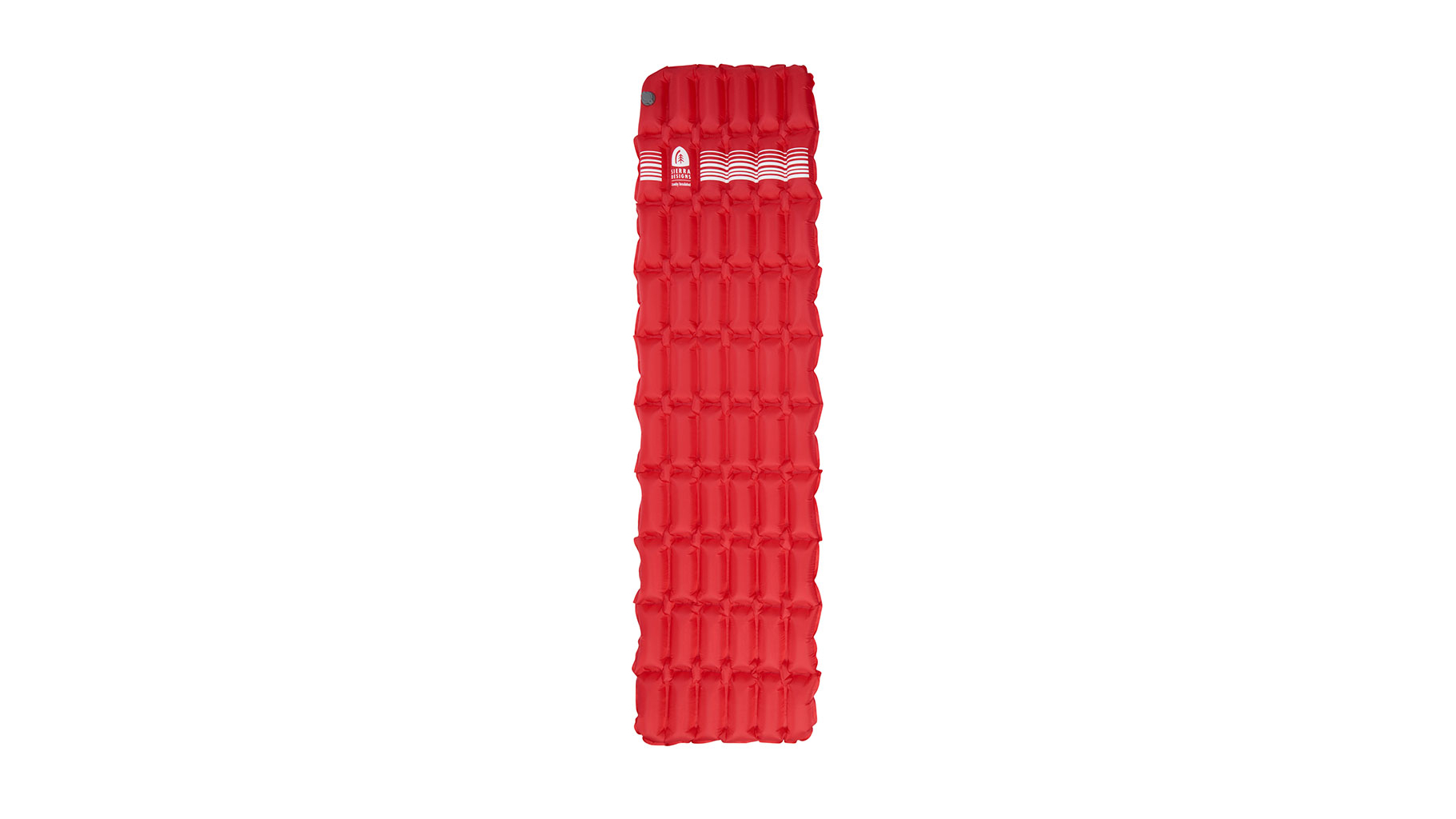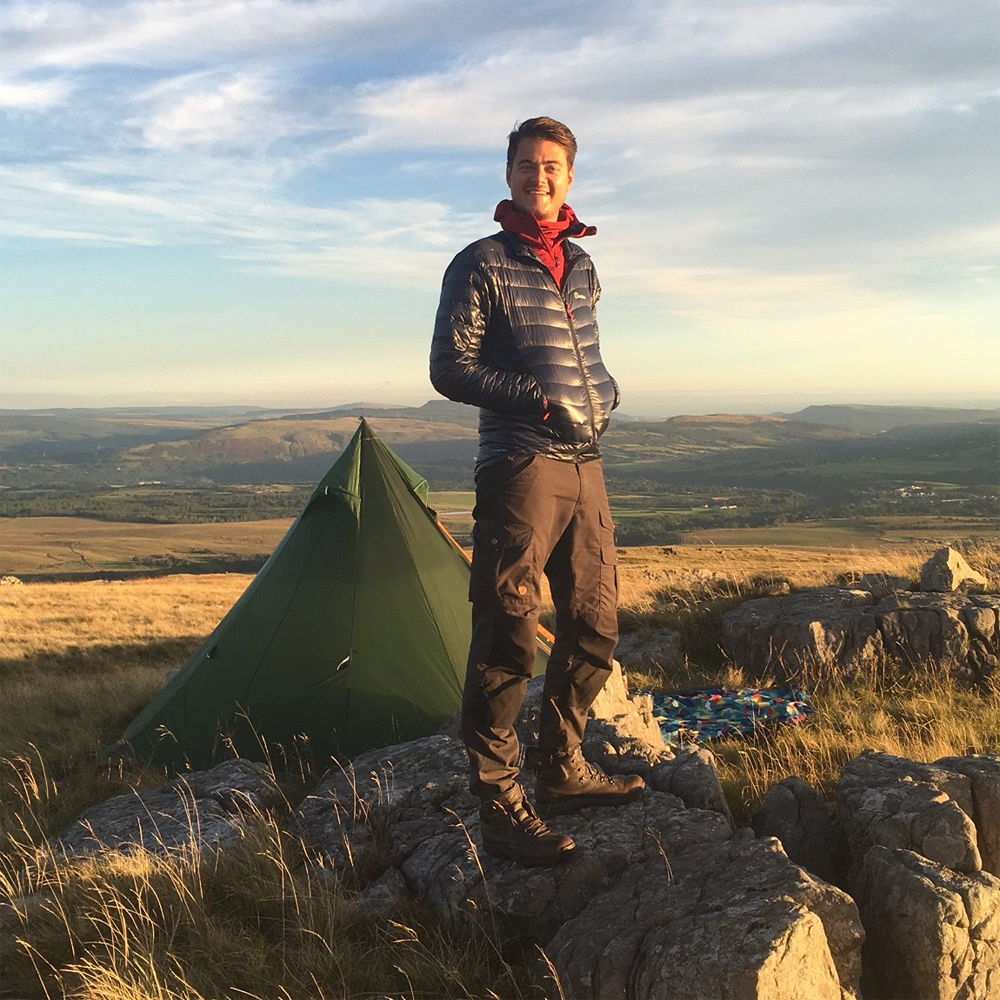Advnture Verdict
A lightweight and very packable sleeping mat that incorporates a layer of sheet insulation for added warmth. The accommodating rectangular cut further enhances overall comfort.
Pros
- +
Comfortable
- +
Great stuff sack
- +
Accommodating rectangular cut
Cons
- -
Potentially fragile valve design
- -
Not the warmest
You can trust Advnture
First thoughts
The Sierra Designs Granby Insulated sleeping pad is a sister mat to the company’s lightweight Shadow Mountain, but with an additional layer of lightweight synthetic sheet insulation that increases the R-value to 2.1, making it suitable for a wider range of temperatures.
- Stay warm while you're camping with the best sleeping bags
- Want other options for a good night's sleep? Check out the best sleeping pads here
- Learn how to choose a sleeping pad
It should work well for camping from late spring through to early autumn, and hardy campers could probably push it a little further than that, especially if paired with a warm down sleeping bag.
• RRP: $100 (US)
• Style: Insulated air mat
• Weight: 570g/1lb 4oz
• Variants: one size
• Dimensions: 183 x 50.8cm /72 x 20in
• Thickness: 7.6cm/3in
• Pack size: 25.4 x 10.2cm/10 x 4in
• R-value: 2.1
• Compatibility: 3-season
The mat employs a chambered system that is a little similar to the design of the Vango Aotrom, and though it isn’t quite as lightweight or as packable as that mat, it is significantly warmer thanks to that internal insulation.
The fabric is a 20-denier ripstop nylon that balances weight with long-term durability. Although not as robust as some heavier mats, overall this still feels like a well-made pad constructed from high-quality materials.
In the field
We tossed the Granby into our packs along with a lightweight tent and sleeping bag, before setting out for a quick overnight wild camp. Having pitched our tent, we unrolled the mat and inflated it, which proved a simple process. There’s no pump sack, but the valve is a familiar design that is easy and intuitive to use even with lung-power alone.
Once it was laid out, we noted that it’s actually quite a narrow pad. However, the rectangular cut feels accommodating and will likely appeal to campers who dislike tapered mummy-style pads. Lying out on the Granby proved to be a very pleasant experience whether you sleep on your back or turn on to your side.
When fully inflated the mat is about 3 inches thick, which was enough for us to avoid ‘bottoming out’ even at common pressure points like the hips and shoulders. It’s not a particularly noisy or crinkly mat to sleep on either. As a result, we slumbered happily – a firm tick in the comfort box.
All the latest inspiration, tips and guides to help you plan your next Advnture!
Our only slight reservations about the mat came the next morning, when it was time to pack up. To deflate the mat, you pull the valve away from its surrounding plastic ring. However, the valve’s tight fit means it requires a fair amount of pressure to pull it open, which seems to place a lot of stress on the fabric of the mat.
The valve is also placed at the head end of the mat, on the upper surface. It protrudes a little, and we found it tended to snag on our other bits of sleeping gear. But we were impressed with the ‘burrito-style’ bag, which is also a feature of other Sierra Designs kit, including many of the brand’s tents.
This has a side-entry system that makes packing the mat away so much easier than trying to wrestle it into a conventional drawcord stuff sack.
An outdoors writer and editor, Matt Jones has been testing kit in the field for nearly a decade. Having worked for both the Ramblers and the Scouts, he knows one or two things about walking and camping, and loves all things adventure, particularly long-distance backpacking, wild camping and climbing mountains – especially in Wales. He’s based in Snowdonia and last year thru-hiked the Cambrian Way, which runs for 298 miles from Cardiff to Conwy, with a total ascent of 73,700 feet – that’s nearly 2½ times the height of Everest. Follow Matt on Instagram and Twitter.


